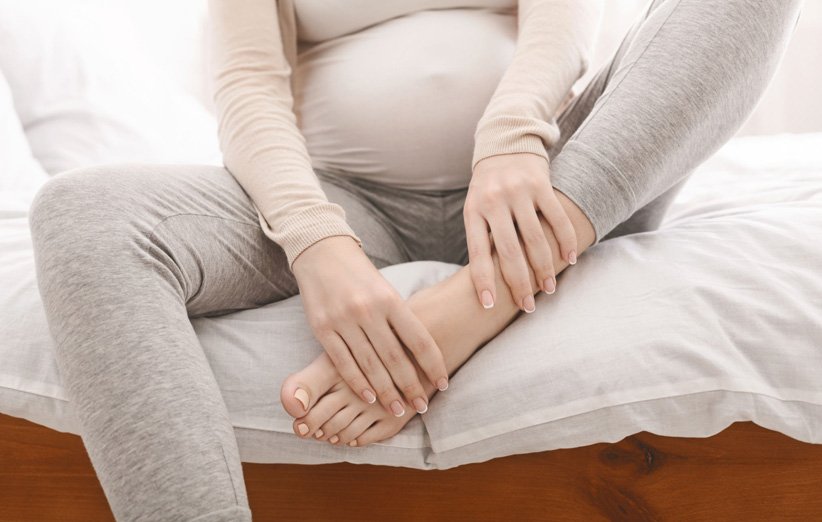Restless Legs Syndrome (RLS) during pregnancy is a prevalent condition that affects many expectant mothers, particularly during the 3rd trimester that can lead to considerable discomfort and disrupt sleep patterns. While pharmacological treatments are generally not advised during pregnancy, various non-pharmacological strategies can be employed to alleviate symptoms effectively.
Understanding Restless Legs Syndrome
Restless Legs Syndrome, also referred to as Willis-Ekbom disease, is a neurological disorder that induces a compelling need to move the legs, often accompanied by uncomfortable sensations. The symptoms typically intensify during periods of inactivity, especially in the evening or at night, which can result in significant sleep disturbances. It is estimated that approximately 20% of pregnant women experience RLS, with hormonal fluctuations, iron-deficiency anemia, and certain medications being common contributing factors.
Symptoms and Diagnosis
The hallmark symptom of RLS is the intense compulsion to move the legs, which may be described in various ways, including:
- Tingling sensations
- Burning feelings
- Itching
- Crawling sensations
These discomforting sensations predominantly manifest below the knee but can also extend to the thighs, feet, and arms. Diagnosis is primarily based on a thorough discussion of symptoms and medical history, as there is currently no definitive diagnostic test for RLS.
Causes of RLS in Pregnancy
The causes of RLS can be multifaceted. In pregnant women, the condition is often associated with:
- Hormonal changes: Fluctuations in hormone levels during pregnancy may trigger or exacerbate RLS symptoms.
- Iron-deficiency anemia: This condition is common during pregnancy and can worsen RLS symptoms. Routine antenatal care includes screening for anemia, and healthcare providers may prescribe iron supplements if necessary.
- Medications: Certain medications, such as antidepressants and antihistamines, may exacerbate RLS symptoms. Pregnant women must consult their healthcare provider before making any changes to their medication regimen.
7 Non-Pharmacological Treatment Options
Given that medication is not typically recommended during pregnancy, expectant mothers can explore various lifestyle modifications and home remedies to manage RLS symptoms effectively:
- Sleep Hygiene: Establishing a consistent sleep schedule and nighttime routine can significantly improve sleep quality.
- Dietary Adjustments: Limiting caffeine and alcohol intake is advisable. While the direct correlation between diet and RLS is not fully established, excessive caffeine consumption can lead to complications during pregnancy.
- Exercise: Engaging in moderate physical activity, such as walking or swimming, can help alleviate symptoms. However, it is advisable to avoid intense exercise, especially in the evening.
- Relaxation Techniques: Incorporating practices such as yoga, stretching, and relaxation exercises can be beneficial in managing symptoms.
- Heat Therapy: Applying heat pads or taking warm baths may provide temporary relief from discomfort.
- Leg Massages: Gentle massages can help soothe the discomfort experienced in the legs.
- Distraction Techniques: Engaging in activities like reading, listening to music, or practicing mindfulness can help divert attention from the urge to move the legs.
Addressing Iron-Deficiency Anemia
If RLS is suspected to be linked to iron-deficiency anemia, healthcare providers may recommend iron supplementation. This can help improve both anemia and RLS symptoms. However, it is imperative to discuss any supplementation with a healthcare professional to ensure safety during pregnancy.
Prognosis and Postpartum Considerations
For the majority of women, RLS symptoms related to pregnancy typically resolve shortly after childbirth. However, some individuals may experience recurrent symptoms later in life. It is essential for women who have experienced RLS during pregnancy to monitor their symptoms postpartum and discuss any concerns with their healthcare provider.
Similar Conditions to Consider
Other medical conditions may present with symptoms similar to RLS, necessitating careful evaluation by healthcare professionals. These include:
- Deep Vein Thrombosis (DVT): Pregnant women are at an elevated risk for DVT, which can present with leg pain, swelling, and warmth. Symptoms such as throbbing pain in one leg, swelling, and changes in skin color warrant immediate medical attention.
- Meralgia Paraesthetica: This condition arises from a trapped nerve in the thigh, often exacerbated by weight gain during pregnancy, causing burning or numbness on the outer thigh.
Conclusion
Restless Legs Syndrome is a common yet distressing condition that can significantly impact the quality of life for pregnant women, particularly during the 3rd trimester. While pharmacological interventions are typically avoided, various non-pharmacological strategies can effectively manage symptoms. Expectant mothers should prioritize sleep hygiene, make informed dietary choices, and engage in moderate exercise while consulting their healthcare providers for personalized care. Understanding the underlying causes and potential complications of RLS empowers women to seek appropriate treatment and support, ensuring a healthier and more comfortable pregnancy experience. Additionally, maintaining open communication with healthcare professionals about any symptoms, concerns, or changes in health status is crucial for optimal maternal and fetal well-being.




I learned a lot from this. Thank you.